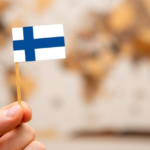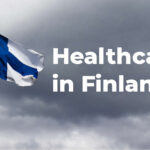
Cost of Living While Studying for a PhD in Finland
Introduction
Finland has become a sought-after destination for international PhD students, renowned for its high-quality education, cutting-edge research facilities, and inclusive academic environment. Known for its emphasis on innovation and sustainability, Finland provides a welcoming and supportive setting for students pursuing advanced studies. However, understanding the cost of living in Finland is crucial before making the move, as expenses can vary depending on location, lifestyle, and funding options. Finland’s safe and well-organized cities offer a high standard of living, but planning for accommodation, daily expenses, and student essentials is essential to ensure a smooth transition into this vibrant Nordic country.
Tuition Fees and Financial Support for PhD Students
Another important aspect of studying in Finland to get a PhD is the policy on fees for doctorate students in Finland. Many universities in Finland do not charge for PhD courses; this applies regardless of whether the student is an EU citizen or not, making Finland a good destination for advanced studies. This policy allows students to concentrate on their studies and research with the leverage of not paying high fees compared to most nations.
Nonetheless, some of them prefer free tuition, so they have to pay for other costs, such as living expenses, which are too expensive. The good news is that Finland provides several opportunities for funding for PhD candidates. Students receive their funds or scholarships from their universities or through national scholarships such as the EDUFI Fellowship – for talented foreign researchers. Furthermore, PhD students can request research grants, often general research grants, but can include specific research projects or travel grants for conferences and research fields. University grants are also offered mainly to students based on academic excellence, research potential, and needs.
Additional sources of funds extend prospects for external financial support. Today, many Finnish foundations and research organizations offer scholarships and funds to international students. Several students may also receive partial funding from private organizations, especially in computer sciences, natural and environmental science, and engineering. The aforementioned financial aid facilities enable one to have an optimal time in their PhD studies and make the most of their research in Finland.
Accommodation Costs for PhD Students in Finland
Accommodation is one of the primary expenses for PhD students in Finland, with costs varying by city and housing type. In major cities like Helsinki, monthly rent for a one-bedroom apartment ranges from €700 to €1,250, while smaller cities like Tampere or Turku offer slightly lower rates. Many students opt for shared apartments or university housing, which can be more affordable, typically around €400 to €700 per month.
To secure accommodation, it’s essential to start early, as student housing is competitive, especially in larger cities. Student housing organizations like HOAS in Helsinki provide reasonably priced rooms designed specifically for students, making them a popular choice.
Food and Grocery Expenses in Finland
Food costs can be significant in Finland, with students typically budgeting between €200 and €350 per month for groceries. Prices for staples vary; for example, bread costs around €2.50, milk about €1 per liter, and fresh produce tends to be pricier due to Finland’s climate.
To manage expenses, students can shop at budget-friendly grocery chains like Lidl or K-Supermarket. Cooking at home is often more economical than dining out, as restaurant meals can range from €10 to €20 for a simple dish. Many universities also offer affordable student cafeterias, where meals are subsidized, costing around €2.50 to €5, making them a convenient and budget-friendly option.
Transportation Costs for Students
Finland’s well-developed public transportation system makes it easy and efficient for students to navigate cities and travel between regions. In urban areas like Helsinki, Tampere, and Turku, public transportation options include buses, trams, and trains, all of which offer discounted rates for students. For example, in Helsinki, a monthly transportation pass for students costs around €35, while in other cities, it may range from €25 to €40. This discounted rate is particularly helpful for students on a budget, allowing them to move freely without needing a car, which can be expensive due to fuel and insurance costs.
For students living close to campus, biking is an affordable and popular alternative. Many Finnish cities have dedicated cycling paths, making it safe and convenient to commute by bike. Investing in a used bicycle can cost anywhere from €50 to €150, a one-time expense that pays off over time. For those in more rural or suburban areas, regional trains are reliable and offer discount cards that help reduce costs further, especially for longer commutes. Some students also opt for seasonal transport passes, which provide flexibility during the colder months when biking may be less feasible.
Trains and buses in Finland are relatively cheap and local; thus, clients can travel around Finland while exploring affordable means of transport. Using VR, a railway company in Finland, students can afford weekend trips and excursions to quite distant places using intercity buses. This flexibility enables the learner to appreciate Finland’s culture and natural kal scenery without necessarily spending a lot of money on travel, and on top of that, students get to fully utilize various forms of student-friendly transportation.
Healthcare Expenses for International Students
Healthcare in Finland is accessible and high-quality. EU students can use a European Health Insurance Card (EHIC) for reduced costs, while non-EU students need private insurance, typically costing €300–€600 per year. This insurance covers essential medical expenses and meets residency permit requirements.
PhD students can also access the Finnish Student Health Service (FSHS) by paying a semester fee of about €70, which covers general health, mental health, and dental services at reduced rates. This combination of private insurance and FSHS provides affordable healthcare for international students.
Study Materials and Research-Related Costs
Some of the costs that a PhD student in Finland may incur include purchasing study and research materials, although most are available for a token or free. Many textbooks and academic journals are available mainly from University libraries, and students, in many cases, enjoy open access to several databases, reducing the need for expensive resources. However, where the nature of studies requires it, the students may have to set aside money for software, lab, or particular equipment, which can sometimes be significantly different for each line of discipline.
In some cases, money for research-relevant expenses, such as transport to filming locations or meeting attendance, is extorted from implicit university stipends or research grants. Most universities also provide other forms of travel grants for students to present their work during conferences at lower charges. Consequently, this means that PhD students can manage such expenses occasioned by study well, applying these resources and funding avenues as listed below.
Entertainment and Leisure Expenses
When students pursue their Ph. D.s in Finland, they will have fun activities, though the costs of fun and other leisure activities may accrue. Students will generally spend €100-€200 monthly on entertainment such as eating out, theatres, parties, etc. Dining out a meal in a restaurant in Portugal costs between €10 and €20, and a movie ticket about €12. Still, visits to entertainment places like theatres, museums, and cultural centres are less than other places and are the most attractive offers to students.
Everyone in Finland loves outdoor activities, and many are offered for free or at minimal cost. Finn’s students can freely visit various parks, lakes, and forests, perfect for hiking, skiing, or skating during the winter, without paying any fees. Universities also count on student clubs that often arrange low-cost parties and outsourced trips to help students have fun and rest. Therefore, enhancing these options enables students to enjoy a balance between leisure activities and their finances.
Utility and Internet Costs
Utility costs, including electricity, water, and heating, can vary depending on the type of housing PhD students choose in Finland. For students in shared apartments or university housing, utility costs are often included in the rent, making budgeting easier. However, for those renting privately, utility costs can range from €50 to €100 per month, especially during colder months when heating is essential. Finland’s winters can increase heating costs, so students renting independently should be mindful of seasonal fluctuations.
Internet expenses are typically separate, costing around €20 to €30 per month for a reliable broadband connection, depending on the provider and speed. Mobile phone plans vary, with basic packages costing around €10 to €15 per month for calls, texts, and data, but more extensive data plans are available for around €20 monthly.
To save on these costs, students can compare different internet and mobile providers for the best deals and consider shared data plans or prepaid options. Conserving energy, such as lowering heating when away, also helps keep utilities manageable. By making small adjustments, students can significantly reduce their monthly utility and internet expenses.
Conclusion
Studying for a PhD in Finland offers a unique academic experience in a country known for its excellent education system and high standard of living. While tuition is often free, PhD students need to budget carefully for living expenses, including accommodation, food, healthcare, and transportation. However, with accessible funding options, discounts, and affordable activities, students can enjoy a balanced lifestyle that supports both their academic and personal growth in Finland. By planning expenses wisely, PhD students can make the most of their time in this remarkable country.
Frequently Asked Questions (FAQs)
What is the average cost of living for PhD students in Finland?

The average cost of living for PhD students in Finland is typically between €700 and €1,200 per month. This includes expenses for accommodation, food, transportation, and other essentials. Costs vary depending on the city, lifestyle, and housing choice, with larger cities like Helsinki generally being more expensive than smaller towns.
Is healthcare expensive for international students in Finland?

Healthcare for international students in Finland is relatively affordable. EU students can access healthcare with a European Health Insurance Card (EHIC), while non-EU students need private insurance, costing around €300–€600 per year. Additionally, PhD students can pay a €70 per semester fee for the Finnish Student Health Service (FSHS), which covers basic health services at reduced rates.
Can PhD students in Finland work part-time to cover their expenses?
Yes, PhD students in Finland can work part-time to help cover living expenses. International students from non-EU countries are allowed to work up to 25 hours per week during the academic term and full-time during holidays. However, balancing part-time work with academic responsibilities can be challenging, so planning is essential.
How can I find affordable housing as a PhD student in Finland?
Affordable housing can be found through student housing organizations, such as HOAS in Helsinki, which offers reasonably priced options specifically for students. Applying early is recommended due to high demand. Shared apartments and university housing are often more budget-friendly than private rentals, especially in larger cities.
Are there any scholarships specifically for international PhD students in Finland?
Yes, Finland offers several scholarships for international PhD students. Universities may provide stipends or scholarships based on academic merit. Additionally, the EDUFI Fellowship is a popular option for international researchers. Students can also explore external grants and research funding from Finnish foundations and research organizations to support their studies.